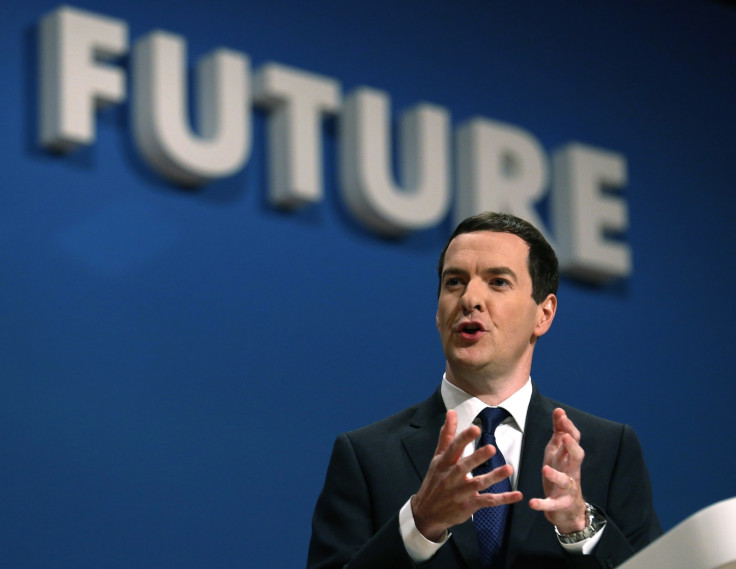Has George Osborne Misled Britain over 'Halved' £1.7bn EU Payment?

Critics allege the UK will not receive a reduction in its £1.7bn additional EU budget payment, despite the Chancellor George Osborne claiming that the bill has been halved.
In a confusing turn of events, a series of other European finance ministers who attended the meeting that Osborne claimed was a "real result for Britain," have been queuing up to insist that the country has had no discount, but has merely delayed payment and offset it against a €1bn rebate it was scheduled to receive in 2016.
The Dutch Finance Minister Jeroen Dijsselbloem told reporters in Brussels: "The British didn't get a reduction, they just have this rebate system."
RTE reported the Irish Finance Minister Michael Noonan as saying: "The UK will pay the whole amount without any penalties attached or interest rates. The instalments will be paid over a period of time."
BREAKING: Irish Finance Minister Michael Noonan says the UK "will pay the full" surcharge of £1.7bn, flatly contradicting @George_Osborne
— Tony Connelly (@tconnellyRTE) November 7, 2014These statements jar greatly with what Osborne himself said upon emerging from the meeting: "Instead of footing the bill, we have halved the bill, we have delayed the bill, we will pay no interest on the bill, and if there are mistakes in the bill we will get our money back."
Osborne claimed that instead of paying £1.7bn, the UK will make payments totalling £850m – exactly half the total – most likely in July and September of 2015.
What Will Britain Actually Pay?
While Osborne has not technically lied, he has been accused of putting serious spin on events.
The UK will pay half of the bill, but only because an £850m rebate payment of 2016 which the UK was due to receive will be deducted from the total. The UK won't make any saving, but will delay payment. It also means the UK will not receive their rebate in 2016, so the gain is very much short-lived.
What is the 2016 Rebate?
Thirty years ago Margaret Thatcher won a rebate on budgetary contributions. This means that the UK gets back two-thirds of the net contribution it made the previous years. Due to the increased payment of £1.7bn, the UK is in line for an additional rebate – totalling £850m.
However, according to the EU's Budget Commissioner, Kristalina Georgieva, this rebate would always have been applied to the UK's additional payment and is not a new victory, as claimed by Osborne.
She told a press conference today, as reported by Open Europe: "As we all know the UK receives a rebate on their contribution, but in years when the UK has to pay additional because of GNI corrections, normally this payment would be on 31 December and it would be in the full amount.
"With the proposal [under discussion]...in exceptional years this period of time would be stretched into the next year, and when this happens, and it would be in these exceptional circumstances, then the payment and the rebate on the payment could converge. In a normal year, they would not. In a normal year, you have a payment on 31 December and then next year, in the spring, we have the calculation of the rebate on this payment."
So What Has Osborne Actually Achieved?
There is a lot of contradictory information at this point, but it seems that by deferring the payment until next year, the UK can now apply the rebate to it. That appears to be the primary achievement.
That does not consist, however, of halving the payment.
Who is Saying What?
Opponents of Osborne are lining up to take a pop at his "creative accounting" and "smoke and mirrors".
The rebate is a proportion of the difference between what we pay and what we get back. It applied throughout the period in question. 1/2
— Daniel Hannan (@DanHannanMEP) November 7, 2014It's not credible to claim that it was ever in doubt. This is, evidently, how EU supporters plan to fight the referendum. Dishonestly. 2/2
— Daniel Hannan (@DanHannanMEP) November 7, 2014Osborne trying to spin his way out of disaster. UK still paying full £1.7bn, his credibility is about to nose dive.
— Nigel Farage (@Nigel_Farage) November 7, 2014Nobody will fall for this smoke and mirrors - George Osborne is simply counting rebate Britain was due anyway http://t.co/nxgF2uNMiO
— Ed Balls (@edballsmp) November 7, 2014© Copyright IBTimes 2024. All rights reserved.






